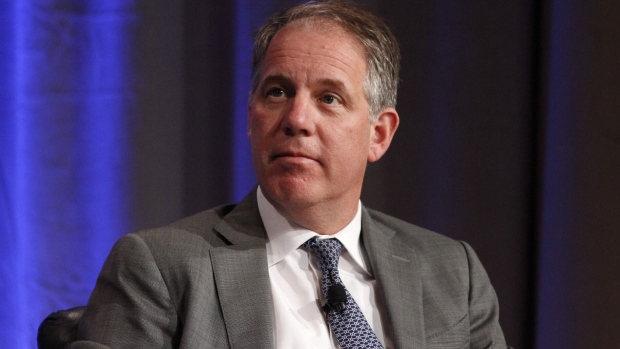Apr 15, 2024
Apollo’s Zelter Talks Up Private Credit to Australian Mega-Funds
, Bloomberg News

(Bloomberg) -- Apollo Global Management Inc. Co-President James Zelter said financial markets are undergoing a “massive transition,” where companies are increasing looking at private credit options rather than financing from banks.
“The role of banks isn’t going to be eliminated but it’s certainly going to evolve,” Zelter told the Asia Pacific Financial and Innovation Symposium in Melbourne on Tuesday. “The new paradigm in the last decade is a variety of private capital solutions. Mostly on the credit side, some degree on the equity side.”
Zelter appeared alongside heads of Australian pension funds, an industry that’s seeking more private markets opportunities with Wall Street investors. Apollo is aiming to lure capital from insurers and institutions that handle money for retirees in Asia, and has raised $35 billion from the region since the start of 2022.
Read More: Apollo’s Asia Expansion Has Lured in $35 Billion From Region
John Pearce, chief investment officer of A$124 billion ($80 billion) pension UniSuper, said his fund had been allocating more to private credit, particularly in Europe.
“That’s where some really attractive spreads are at the moment, where the banks aren’t willing to play,” Pearce said, adding the mid-corporate market had been appealing. “I agree with Jim, it’s really attractive, but where I might not be on the same page is that these relativities aren’t going to last forever.”
Some investors are showing more caution around private credit as cracks start appearing in the asset class. Central bankers’ rapid-fire hikes over the past two years have strained the finances of corporate borrowers, making it hard for many of them to keep up with interest payments.
While private credit was appealing, the returns still had to stack up compared with competing deals in private equity, infrastructure and property, said Sonya Sawtell-Rickson, CIO of A$82 billion pension fund HESTA.
“It’s not enough for us to get a great dislocated return for 12 months which is floating rate, and then going to return to a much lower level into the future,” Sawtell-Rickson said. “We’d rather lock in a really attractive return for 10 years.”
Zelter said the sector is still at an early stage and will become much broader in its scope.
“Certainly in the US and Europe, if you’re an institutional investor and you’re not focused on this opportunity to be able to find an incremental spread versus the public investment-grade market, you’ve made a great mistake,” said Zelter.
©2024 Bloomberg L.P.






